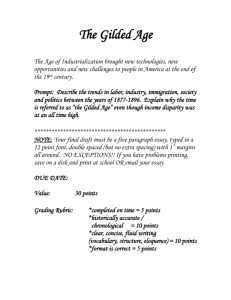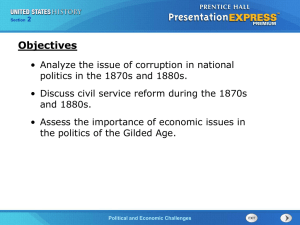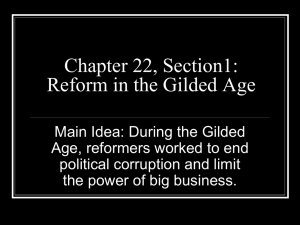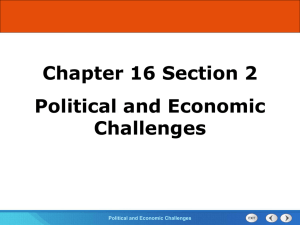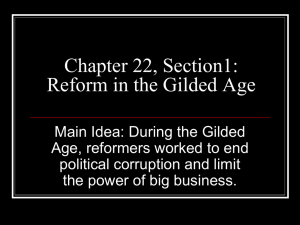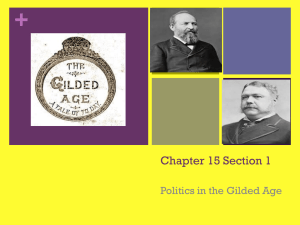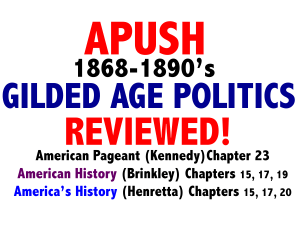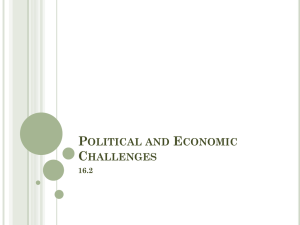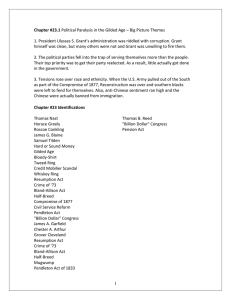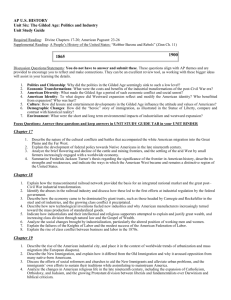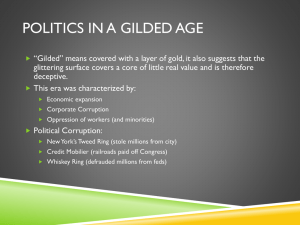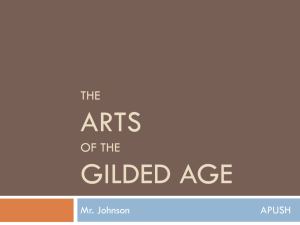Chapter 18: Renewing the Sectional Struggle, 1848-1854
advertisement
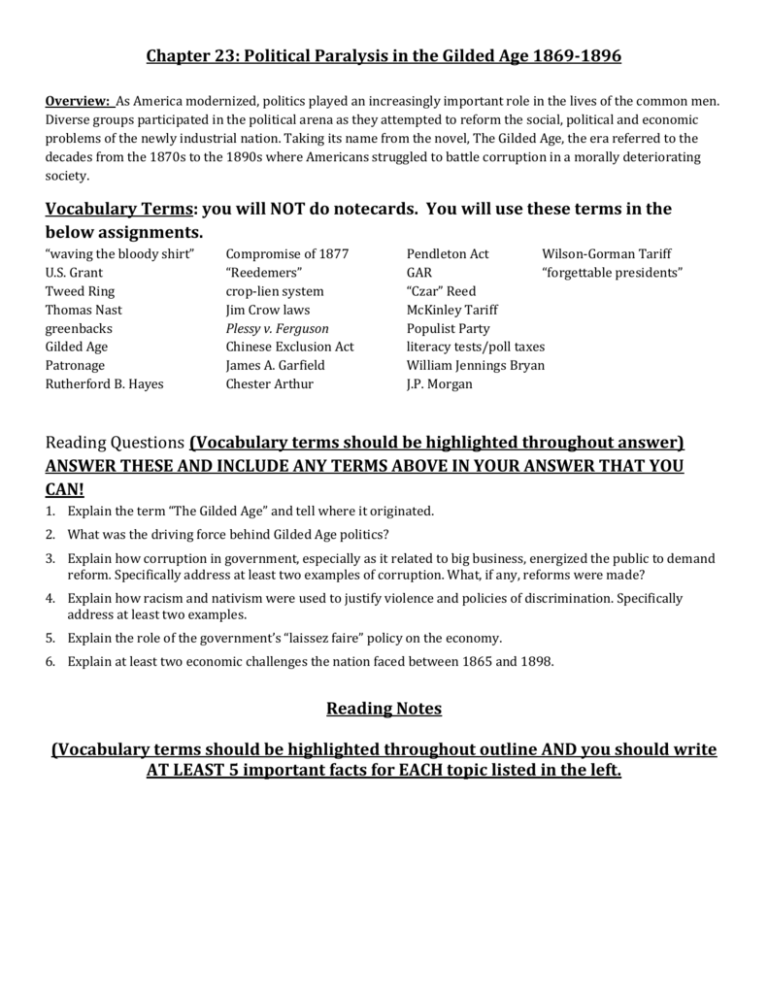
Chapter 23: Political Paralysis in the Gilded Age 1869-1896 Overview: As America modernized, politics played an increasingly important role in the lives of the common men. Diverse groups participated in the political arena as they attempted to reform the social, political and economic problems of the newly industrial nation. Taking its name from the novel, The Gilded Age, the era referred to the decades from the 1870s to the 1890s where Americans struggled to battle corruption in a morally deteriorating society. Vocabulary Terms: you will NOT do notecards. You will use these terms in the below assignments. “waving the bloody shirt” U.S. Grant Tweed Ring Thomas Nast greenbacks Gilded Age Patronage Rutherford B. Hayes Compromise of 1877 “Reedemers” crop-lien system Jim Crow laws Plessy v. Ferguson Chinese Exclusion Act James A. Garfield Chester Arthur Pendleton Act Wilson-Gorman Tariff GAR “forgettable presidents” “Czar” Reed McKinley Tariff Populist Party literacy tests/poll taxes William Jennings Bryan J.P. Morgan Reading Questions (Vocabulary terms should be highlighted throughout answer) ANSWER THESE AND INCLUDE ANY TERMS ABOVE IN YOUR ANSWER THAT YOU CAN! 1. Explain the term “The Gilded Age” and tell where it originated. 2. What was the driving force behind Gilded Age politics? 3. Explain how corruption in government, especially as it related to big business, energized the public to demand reform. Specifically address at least two examples of corruption. What, if any, reforms were made? 4. Explain how racism and nativism were used to justify violence and policies of discrimination. Specifically address at least two examples. 5. Explain the role of the government’s “laissez faire” policy on the economy. 6. Explain at least two economic challenges the nation faced between 1865 and 1898. Reading Notes (Vocabulary terms should be highlighted throughout outline AND you should write AT LEAST 5 important facts for EACH topic listed in the left. The “Bloody Shirt” Elects Grant The Era of Good Stealings A Carnival of Corruption The Liberal Republican Revolt of 1872 Depression, Deflation, and Inflation *** Pallid Politics in the Gilded Age DO NOT DO THIS SECTION The HayesTilden Standoff, 1876 The Compromise of 1877 and the End of Reconstruction The Birth of Jim Crow in the PostReconstruction South*** Class Conflicts and Ethnic Clashes Garfield and Arthur The BlaineCleveland Mudslingers of 1884 “Old Grover” Takes Over Cleveland Battles for a Lower Tariff The BillionDollar Congress The Drumbeat of Discontent Cleveland and Depression Cleveland Breeds a Backlash
